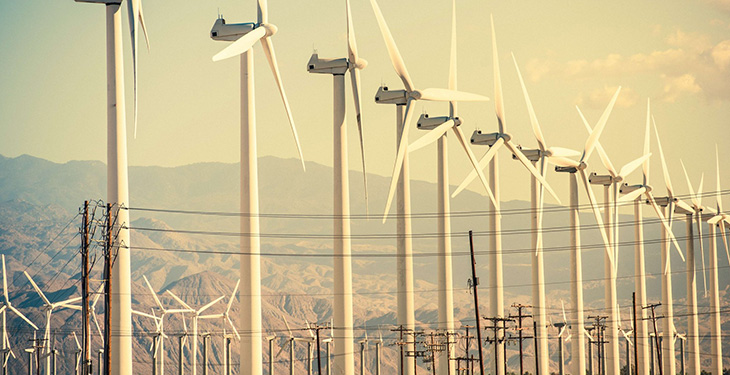As Berlin steps up its switch to renewable energy, consumers of electricity — i.e., German taxpayers — are footing the bill. The problem is grid infrastructure that can’t keep pace with the new sources coming online, according to DW.
Sabine, the fierce storm that hit Europe in February, led to huge overproduction of wind energy in Germany, with domestic wind plants temporarily supplying a staggering 44 gigawatts (GW) of electricity to the national power grid — two-thirds of total national electricity consumption. This is a level not planned for another decade at the earliest as Berlin steps up its noncarbon energy plans.
“Due to the strong wind associated with the storms, the wind turbines, which are mainly concentrated in the north of Germany, produced a lot more electricity than could be consumed at the same time,” Sebastian Kreth, of the chemicals company VCI in Frankfurt, told DW.
Under Germany’s renewable energy law, which is designed to help support green power, wind turbine operators also receive compensation for every kilowatt-hour of electricity not produced if wind power surpasses peak grid capacity. Added to this, power grid operators must accept and distribute electricity from renewable sources even when there’s no demand for it.
The price of electricity can therefore turn negative, meaning that grid operators have to sell at a loss or pass the costs on to customers. It is estimated that so-called grid stabilizing measures due to excess wind power supply in 2020 could cost consumers a total of €4 billion ($4.5 billion) in extra bills for electricity that is sold at a negative price or even never produced.
In 2017, consumers paid €1.51 billion extra for grid stabilization, compared with €1.44 billion in 2018. And the German Federal Network Agency has calculated that the expenditure for the first three quarters of 2019 alone was €950 million.
“We can’t afford this madness in the long run,” said Bernd Westphal, the economic policy spokesman for the Social Democrats (SPD) in parliament.
During the storm Sabine, Germany’s four regional transmission system operators (TSOs) halted production of a combined 210 gigawatt-hours (GWh) of wind power in the two most affected areas because of oversupply.
